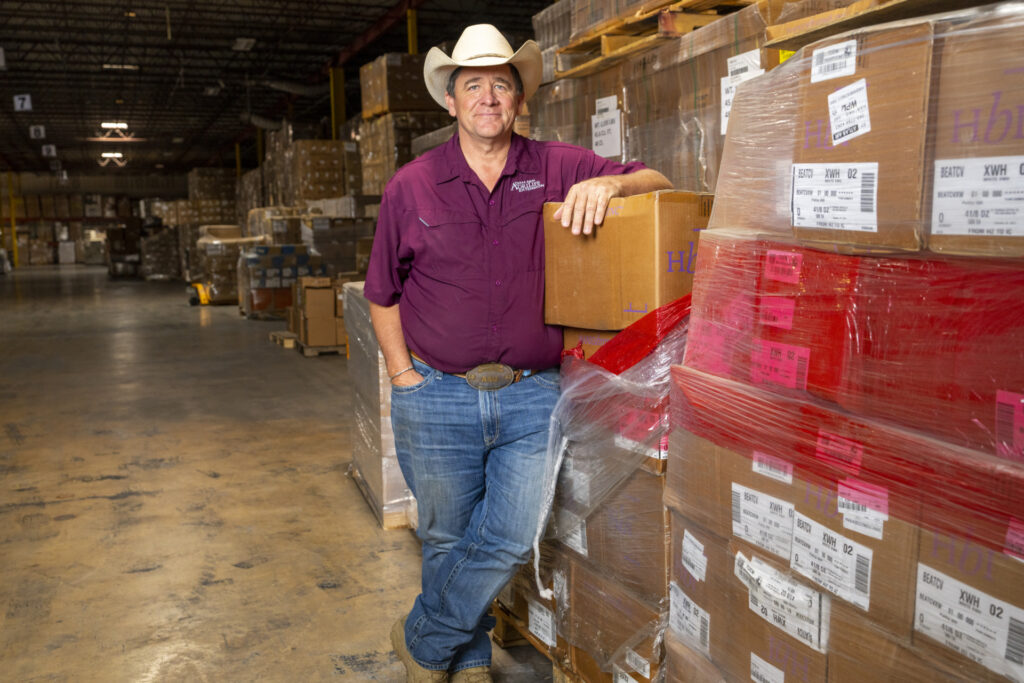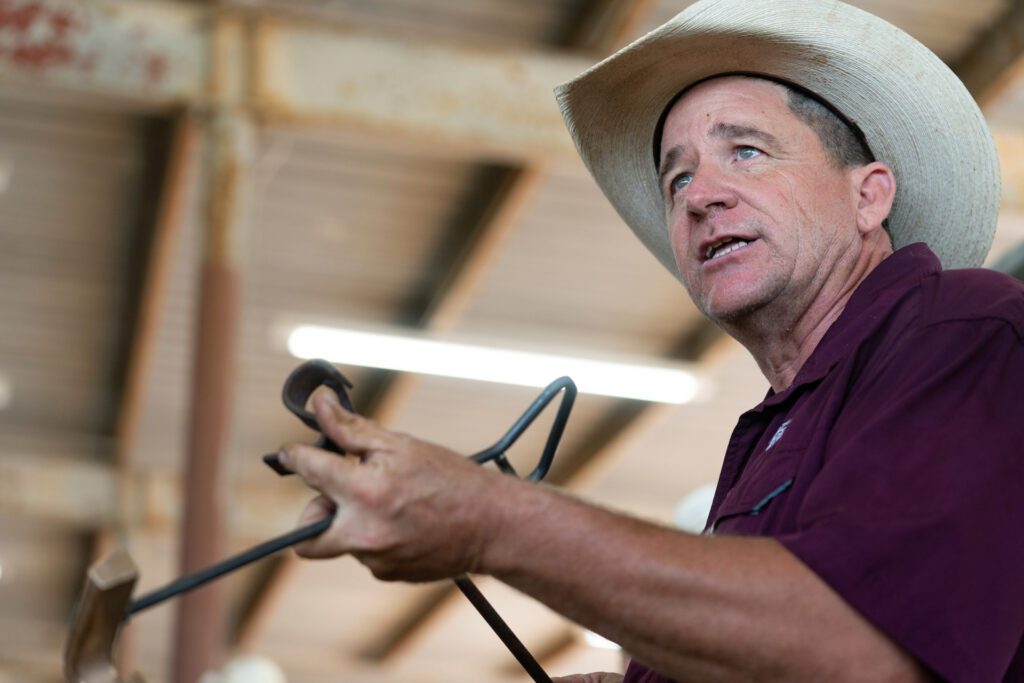A passion for the frontline
AgriLife Extension’s Bryan Davis helping lead Disaster Assessment and Recovery unit
With a heart for assisting people and animals, becoming a Texas A&M AgriLife Extension Service Disaster Assessment and Recovery, DAR, agent fulfilled a passion for Bryan Davis.
Davis, DAR team lead, is quick to offer credit for successful missions of the team led by Monty Dozier, Ph.D., and his coordinating counterpart Rachel Bauer.
“We are all service-minded and just want to help people,” he said.

DAR is part of The Texas A&M University System’s Keeping Texas Prepared initiative. Led by the Texas Division of Emergency Management, DAR works in response to Texas’ needs during natural disasters and pandemics, including COVID-19.
“Our agents are committed to serving Texas, and Bryan is one of many leading agents statewide who we have as part of our Disaster Assessment and Recovery unit,” said Dozier, DAR program coordinator, Bryan-College Station.
Path to disaster response
Davis began his AgriLife Extension career in Comal County as an agriculture and natural resources county agent. His first disaster mission occurred when he received a call from the Comal County judge asking him to assist in the Comal County Emergency Operations Center in July 2002.
“It had been raining substantially, and water had exceeded the dam capacity and went over the spillway, flooding hundreds of homes,” he said. “The county judge asked if I would sit at the County Operations Center.”
Davis also worked in the State Operations Center in Austin for three terms in 2008 during Operation No Fences as Hurricane Ike ravaged Chambers, Liberty and Jefferson counties.

From there, Davis’ missions have been broad and diverse. He helped at the Bastrop wildfires in 2015, where he worked with Bauer in establishing an animal supply and sheltering point, stocking pet food, feed and other resources for those impacted by the fires.
“I was on the strike team for AgriLife Extension District 10,” Davis said. “A year later, we had to go back to Bastrop. The county judge requested more assistance due to another fire in the county.”
Keeping a level head
In 2016, Davis received another call to deploy the strike team to Brazoria County. The Brazos River had exceeded its banks, and severe flooding occurred.
“I was working with local first responders using high-water vehicles to deliver hay and feed to stranded livestock, as well as assisting any citizens who were sheltering in place.”
Other missions have included assisting the Texas A&M Veterinary Medical Team and team director Wesley Bissett, Ph.D., in Paradise, Calif., in response to wildfires in 2018. There the team assisted animals that had been displaced due to the wildfire.
In March 2020, Davis changed from being an agriculture and natural resources agent to the newly formed DAR agent. He reflected on why he continues to serve Texas during disasters.
“I loved being an agriculture agent,” he said. “When it came to disasters, I was able to keep a level head. I have a heart for assisting people and animals in their greatest time of need. After 20 years as an agriculture and natural resources agent, I felt I had more to give and was looking for a way to make a greater impact in our state. DAR gave me that opportunity.”
‘Bigger than me’
Davis said he has made a lot of lifelong friendships working with members of the Texas Division of Emergency of Management as well as other state agencies.
“The experiences have been incredibly rewarding,” he said.
During the onset of COVID-19 in 2020, AgriLife Extension DAR agents were called on to make medical supply deliveries and assist with other state needs as part of the agency’s Operation Pony Express. Davis said he had been delivering supplies all night long and as it drew closer to 6 p.m. on a Friday, he was finally heading home. Then he received a call from Bauer.
“She said, ‘you need to go to Austin to pick up a therapeutic drug to be delivered for an elderly COVID-positive patient in dire need in Kerrville,’” he said. “When I got there, the doctor came out to receive the medicine delivery, said ‘thank you,’ and quickly went inside. I then realized the impact we can have in saving lives. That was the power of AgriLife Extension’s Pony Express and the DAR unit.”


